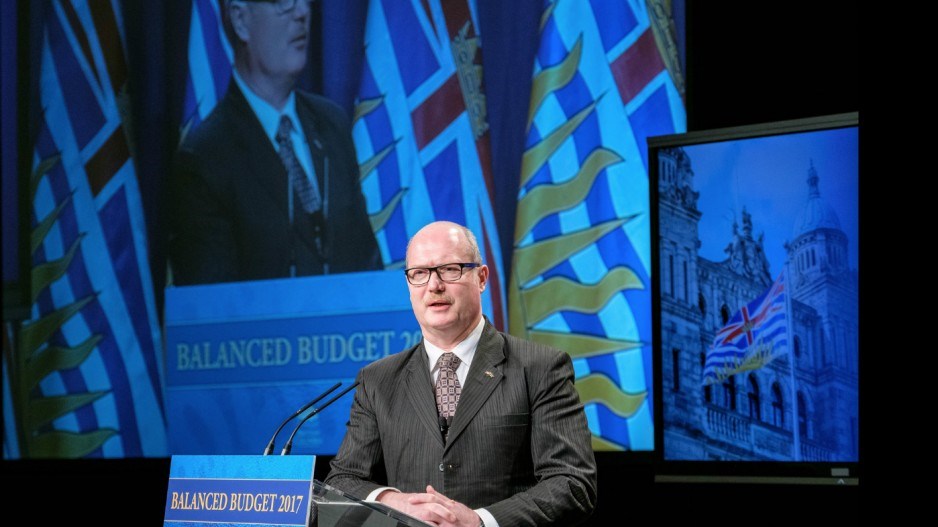The B.C. government last week brought down a budget that includes tax cuts, $3 billion in new spending over three years, record capital spending of $13.7 billion and a $295 million surplus.
Finance Minister Mike de Jong announced February 21 that B.C. is in such strong financial shape that he can afford to halve Medical Services Plan (MSP) premiums and the provincial sales tax (PST) on power sales, spend billions on infrastructure and still aim to whittle the government’s operating debt down to nothing by 2020.
For average British Columbians, the biggest item in the budget might be the reductions to MSP premiums, which will be cut by 50% starting in 2018.
B.C.’s health-care premiums have long been criticized as a hidden tax.
For heavy industry and manufacturing, the biggest item is the reduction of the PST on electricity to 3.5% from 7%, starting in October 2017. The government’s three-year plan calls for the elimination of PST on power altogether in 2019.
For small business, the corporate income tax rate is being reduced to 2% from 2.5%.
The budget calls for record capital spending of $13.7 billion over three years for things like roads, bridges, hospitals and schools. When contributions from the private sector are included, the budget calls for $7 billion in capital spending on transportation infrastructure alone, including $2.4 billion for the George Massey Tunnel replacement.
Other items in the 2017-08 budget include:
•$87 million to improve the province’s technology strategy;
•$40 million to extend high-speed Internet to rural B.C.;
•$1 million for B.C.’s aerospace industry;
•$6 million toward the Buy Local program to support B.C. agriculture;
•$10 million for the Island Coastal Economic Trust for economic initiatives; and
•$6 million to fund three new trade and investment offices in Indonesia, the Philippines and Malaysia.
To address housing affordability, the government will increase the threshold of the province’s first-time homebuyer’s program to $500,000 from $475,000, a move it estimates will save first-time buyers up to $8,000 in property transfer taxes.




